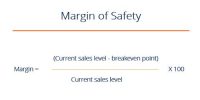Sunk Cost is a cost that has already been incurred and thus cannot be recovered. It should not be considered when making the decision to continue investing in an ongoing project since these costs cannot be recovered. It is also known as a stranded cost. In other words, it’s a cost that has already been paid and can’t be refunded or reduced. A sunk cost differs from other, future costs that a business may face, such as inventory costs or R&D expenses, because it has already happened. Sunk costs are independent of any event that may occur in the future.
When making business or investment decisions, individuals and organizations typically look at the future costs that they may incur, by following a certain strategy. A company that has spent $5 million building a factory that is not yet complete has to consider the $5 million sunk since it cannot get the money back. It must decide whether continuing construction to complete the project will help the company regain the sunk cost, or whether it should walk away- from the incomplete project. In economic decision making, sunk costs are treated as departed and are not taken into concern when deciding whether to continue an investment project.














